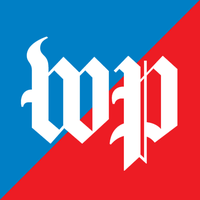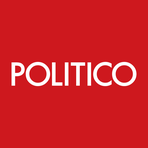Shadows Over Democracy: The Price of Silence in the Age of Trump
October 28, 2024, 4:12 pm

Location: United States, District of Columbia, Washington
Employees: 1001-5000
Founded date: 1877

Location: United States, District of Columbia, Washington
Employees: 501-1000
Founded date: 2007
In the current political landscape, the specter of Donald Trump looms large. His influence stretches beyond the ballot box, reaching into the very heart of American journalism. Recent events reveal a troubling trend: media moguls, gripped by fear of retaliation, are stifling editorial voices. This silence is a dangerous precedent, threatening the foundations of democracy.
The hacking of Trump’s campaign emails by an Iranian group has sent shockwaves through the political arena. Initially, mainstream media hesitated to publish the stolen material. They were cautious, wary of the implications of using hacked content. But as the hackers found alternative outlets, the narrative shifted. A political action committee, American Muckrakers, seized the opportunity. They published internal communications, revealing the inner workings of Trump’s campaign. This was a treasure trove for independent journalists, yet it raised ethical questions. Should the media engage with stolen material? The answer is murky.
Meanwhile, the actions of billionaire media owners cast a long shadow. Jeff Bezos and Patrick Soon-Shiong, titans of the industry, have reportedly intervened to block endorsements that could provoke Trump’s ire. This is not just a matter of editorial discretion; it’s a chilling effect on free speech. The Washington Post and the LA Times, once bastions of journalistic integrity, now appear to be bowing to fear. The phrase “Democracy Dies in Darkness” rings hollow when the very owners of these publications dim the lights themselves.
Editorial boards are meant to express opinions, to guide public discourse. Yet, in a twist of irony, they are being silenced by the very people who should champion their voices. Resignations from editorial staff at both newspapers signal a deepening crisis. Journalists are leaving in protest, unwilling to compromise their principles. This exodus is a clarion call for those who value free speech. It highlights the urgent need for media independence in an era where intimidation tactics are on the rise.
Trump’s history of targeting media outlets is well-documented. His administration was marked by retaliatory actions against those who dared to criticize him. Amazon faced scrutiny, and the Washington Post was not spared. The message was clear: cross Trump, and there will be consequences. This fear is palpable among media owners today. They are not just protecting their businesses; they are preserving their own interests in a volatile political climate.
The implications of this self-censorship are profound. When media owners prioritize their safety over journalistic integrity, democracy suffers. The public relies on a free press to hold power accountable. If the press is muzzled, who will speak truth to power? The answer is unsettling. Without a robust media landscape, misinformation flourishes, and the public is left in the dark.
The situation is further complicated by the actions of independent journalists. Some, like Ken Klippenstein, have chosen to publish the hacked materials, asserting that the public has a right to know. This raises another ethical dilemma: should journalists engage with stolen content? While the intention may be to inform, the consequences can be dire. Engaging with hacked material can set a dangerous precedent, inviting further breaches of privacy and security.
As the 2024 election approaches, the stakes are higher than ever. The interplay between media, politics, and ethics is fraught with tension. The fear of Trump’s potential return to power is palpable. Billionaire owners are not just protecting their interests; they are also shaping the narrative. By silencing dissenting voices, they are complicit in the erosion of democratic values.
The irony is striking. The very phrase “Democracy Dies in Darkness” was meant to illuminate the importance of a free press. Yet, in this climate of fear, it seems that darkness is winning. Bezos and Soon-Shiong’s actions reflect a broader trend of self-censorship among media owners. They are prioritizing their safety over the principles of journalism. This is a dangerous game, one that could have lasting repercussions for democracy.
As the media landscape shifts, the role of independent journalists becomes increasingly vital. They are the torchbearers of truth in a world where corporate interests often overshadow the public good. Their willingness to publish controversial material, even when it comes from dubious sources, is a testament to their commitment to transparency. However, this also places them in the crosshairs of potential backlash.
The public must remain vigilant. The erosion of journalistic integrity is a threat to democracy itself. Citizens should demand accountability from media owners and support independent journalism. The future of democracy hinges on the ability of the press to operate without fear. If the media is silenced, the public is left in the dark, and democracy suffers.
In conclusion, the intersection of fear, power, and media is a precarious one. The actions of billionaire owners like Bezos and Soon-Shiong are emblematic of a larger issue: the fragility of free speech in the face of intimidation. As the 2024 election looms, the need for a fearless press has never been more critical. The light of democracy must not be extinguished. It is up to all of us to ensure that it continues to shine brightly, illuminating the path forward.
The hacking of Trump’s campaign emails by an Iranian group has sent shockwaves through the political arena. Initially, mainstream media hesitated to publish the stolen material. They were cautious, wary of the implications of using hacked content. But as the hackers found alternative outlets, the narrative shifted. A political action committee, American Muckrakers, seized the opportunity. They published internal communications, revealing the inner workings of Trump’s campaign. This was a treasure trove for independent journalists, yet it raised ethical questions. Should the media engage with stolen material? The answer is murky.
Meanwhile, the actions of billionaire media owners cast a long shadow. Jeff Bezos and Patrick Soon-Shiong, titans of the industry, have reportedly intervened to block endorsements that could provoke Trump’s ire. This is not just a matter of editorial discretion; it’s a chilling effect on free speech. The Washington Post and the LA Times, once bastions of journalistic integrity, now appear to be bowing to fear. The phrase “Democracy Dies in Darkness” rings hollow when the very owners of these publications dim the lights themselves.
Editorial boards are meant to express opinions, to guide public discourse. Yet, in a twist of irony, they are being silenced by the very people who should champion their voices. Resignations from editorial staff at both newspapers signal a deepening crisis. Journalists are leaving in protest, unwilling to compromise their principles. This exodus is a clarion call for those who value free speech. It highlights the urgent need for media independence in an era where intimidation tactics are on the rise.
Trump’s history of targeting media outlets is well-documented. His administration was marked by retaliatory actions against those who dared to criticize him. Amazon faced scrutiny, and the Washington Post was not spared. The message was clear: cross Trump, and there will be consequences. This fear is palpable among media owners today. They are not just protecting their businesses; they are preserving their own interests in a volatile political climate.
The implications of this self-censorship are profound. When media owners prioritize their safety over journalistic integrity, democracy suffers. The public relies on a free press to hold power accountable. If the press is muzzled, who will speak truth to power? The answer is unsettling. Without a robust media landscape, misinformation flourishes, and the public is left in the dark.
The situation is further complicated by the actions of independent journalists. Some, like Ken Klippenstein, have chosen to publish the hacked materials, asserting that the public has a right to know. This raises another ethical dilemma: should journalists engage with stolen content? While the intention may be to inform, the consequences can be dire. Engaging with hacked material can set a dangerous precedent, inviting further breaches of privacy and security.
As the 2024 election approaches, the stakes are higher than ever. The interplay between media, politics, and ethics is fraught with tension. The fear of Trump’s potential return to power is palpable. Billionaire owners are not just protecting their interests; they are also shaping the narrative. By silencing dissenting voices, they are complicit in the erosion of democratic values.
The irony is striking. The very phrase “Democracy Dies in Darkness” was meant to illuminate the importance of a free press. Yet, in this climate of fear, it seems that darkness is winning. Bezos and Soon-Shiong’s actions reflect a broader trend of self-censorship among media owners. They are prioritizing their safety over the principles of journalism. This is a dangerous game, one that could have lasting repercussions for democracy.
As the media landscape shifts, the role of independent journalists becomes increasingly vital. They are the torchbearers of truth in a world where corporate interests often overshadow the public good. Their willingness to publish controversial material, even when it comes from dubious sources, is a testament to their commitment to transparency. However, this also places them in the crosshairs of potential backlash.
The public must remain vigilant. The erosion of journalistic integrity is a threat to democracy itself. Citizens should demand accountability from media owners and support independent journalism. The future of democracy hinges on the ability of the press to operate without fear. If the media is silenced, the public is left in the dark, and democracy suffers.
In conclusion, the intersection of fear, power, and media is a precarious one. The actions of billionaire owners like Bezos and Soon-Shiong are emblematic of a larger issue: the fragility of free speech in the face of intimidation. As the 2024 election looms, the need for a fearless press has never been more critical. The light of democracy must not be extinguished. It is up to all of us to ensure that it continues to shine brightly, illuminating the path forward.